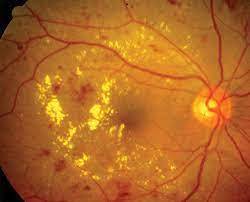Strategies to Prevent Retinal Disorders
Introduction:
Retinal disorders pose a significant threat to vision health, affecting millions worldwide. The retina, a crucial component of the eye responsible for transmitting visual information to the brain, can be susceptible to various conditions that impair its function. However, preventive measures can play a pivotal role in safeguarding against these disorders and maintaining optimal eye health. In this comprehensive guide, we delve into the intricacies of retinal disorders and explore effective strategies to prevent their onset.
Understanding Retinal Disorders:
Before delving into preventive measures, it's essential to grasp the nature of retinal disorders. The retina, a thin layer of tissue lining the back of the eye, contains millions of light-sensitive cells called photoreceptors. These cells convert light into electrical signals, which are then transmitted to the brain via the optic nerve, enabling visual perception.
Retinal disorders encompass a wide range of conditions that affect the structure and function of the retina. Some common examples include:
1. Age-related macular degeneration (AMD): This progressive condition primarily affects the macula, the central portion of the retina responsible for sharp, central vision. AMD is a leading cause of vision loss in older adults.
2. Diabetic retinopathy: Elevated blood sugar levels in individuals with diabetes can damage the blood vessels in the retina, leading to vision impairment or blindness if left untreated.
3. Retinal detachment: This occurs when the retina pulls away from its normal position, disrupting blood flow and causing vision loss. It often results from trauma or underlying eye conditions.
4. Retinitis pigmentosa: A group of inherited disorders characterized by progressive degeneration of the retina's photoreceptor cells, leading to night blindness and tunnel vision.
5. Retinal vein occlusion: Blockage of the veins that drain blood from the retina, resulting in vision loss or distortion.
Preventive Strategies:
While some risk factors for retinal disorders, such as genetics and age, are beyond our control, adopting proactive measures can significantly reduce the likelihood of developing these conditions. Here are some effective strategies for preventing retinal disorders:
1. Routine Eye Exams:
Regular eye examinations are crucial for detecting retinal disorders in their early stages when treatment options are most effective. Optometrists and ophthalmologists can perform comprehensive evaluations, including dilated eye exams and imaging tests, to assess the health of the retina and detect any abnormalities.
2. Maintain Healthy Lifestyle Habits:
A balanced diet rich in antioxidants, vitamins, and minerals can promote overall eye health and reduce the risk of retinal disorders. Foods high in omega-3 fatty acids, such as fish, nuts, and seeds, may help protect against AMD and other retinal conditions. Additionally, maintaining a healthy weight, avoiding smoking, and limiting alcohol consumption can further support retinal health.
3. Manage Underlying Health Conditions:
Chronic conditions like diabetes and hypertension can significantly increase the risk of developing retinal disorders. Proper management of these conditions through medication, lifestyle modifications, and regular medical check-ups is essential for preventing complications that could affect retinal health.
4. Protect Your Eyes from Sun Exposure:
Prolonged exposure to ultraviolet (UV) radiation from the sun can contribute to the development of retinal disorders, including AMD. Wearing sunglasses with UV protection and a wide-brimmed hat when outdoors can help shield your eyes from harmful UV rays and reduce the risk of retinal damage.
5. Exercise Regularly:
Engaging in regular physical activity not only benefits overall health but also promotes good circulation, which is vital for maintaining optimal retinal function. Aim for at least 30 minutes of moderate exercise most days of the week to support cardiovascular health and reduce the risk of retinal disorders.
6. Practice Proper Eye Hygiene:
Simple habits like washing your hands before touching your eyes, avoiding rubbing or applying pressure to the eyes, and using protective eyewear during activities that pose a risk of eye injury can help prevent complications that may affect the retina.
7. Limit Screen Time:
Prolonged exposure to digital screens, such as those from computers, smartphones, and tablets, can contribute to eye strain and fatigue. To reduce the risk of digital eye strain and potential retinal damage, take regular breaks, adjust screen brightness and contrast settings, and maintain a comfortable viewing distance.
8. Be Mindful of Medications:
Certain medications, such as corticosteroids and some types of antimalarial drugs, may have adverse effects on retinal health. If you're prescribed medications that pose a potential risk, discuss alternative options with your healthcare provider and undergo regular monitoring to detect any changes in retinal function.
Conclusion:
Protecting the health of the retina is essential for preserving vision and maintaining overall quality of life. By implementing preventive strategies such as regular eye exams, adopting a healthy lifestyle, managing underlying health conditions, and practicing proper eye hygiene, individuals can reduce their risk of developing debilitating retinal disorders. Additionally, staying informed about potential risk factors and seeking prompt medical attention for any concerning symptoms can further enhance the effectiveness of preventive measures. With a proactive approach to eye care, we can strive towards a future where retinal disorders are minimized, and vision health is prioritized.




No comments yet
Be the first to share your thoughts!